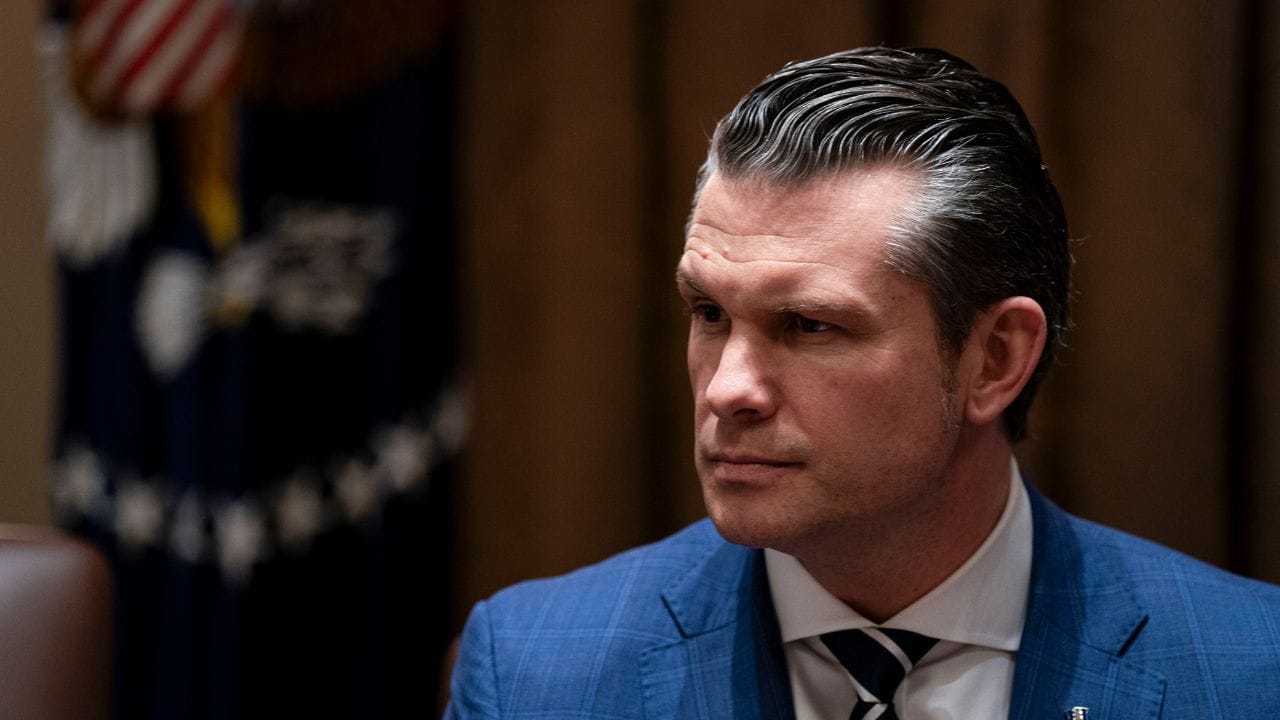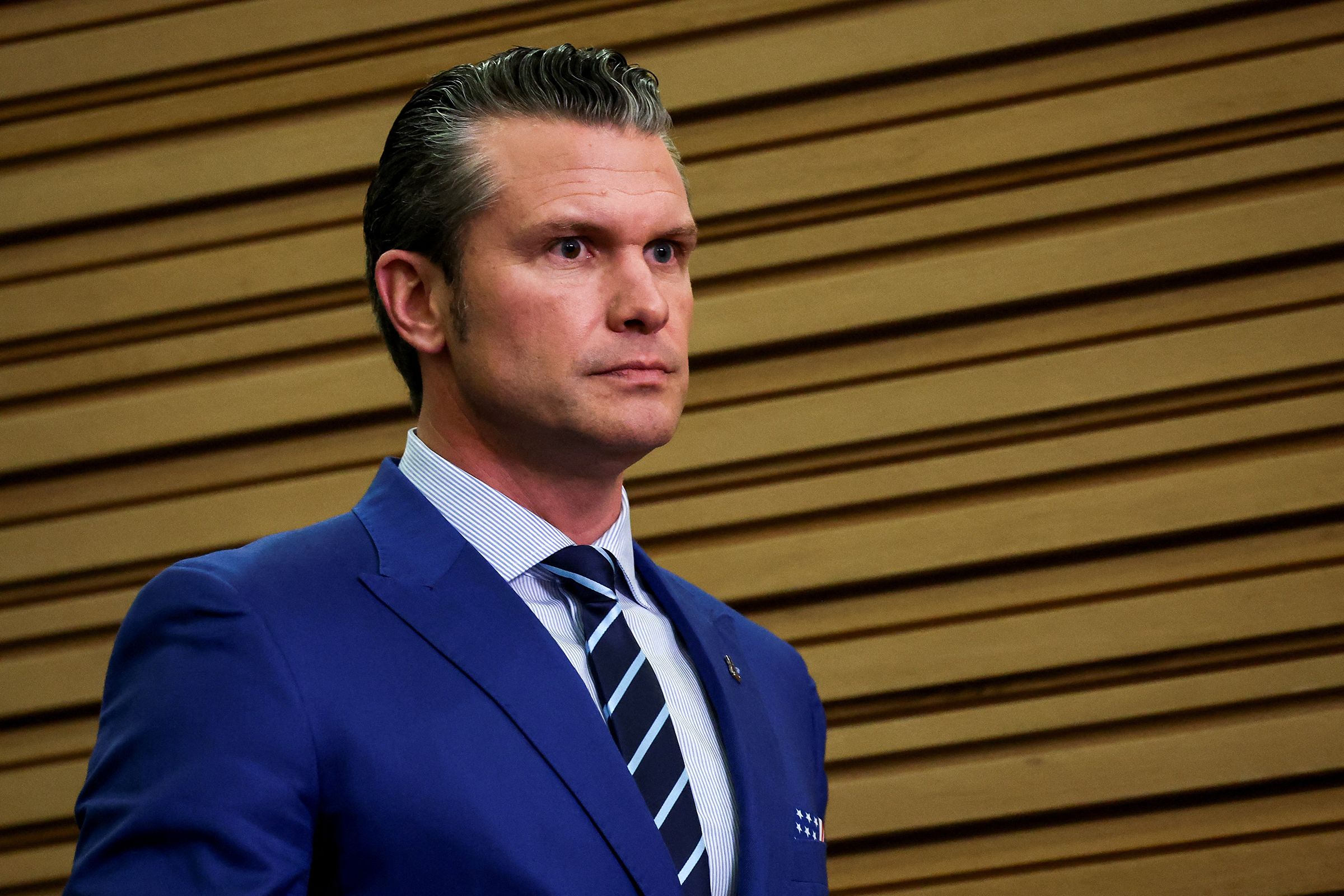
The Pentagon’s inspector general is currently investigating whether staffers working with Defense Secretary Pete Hegseth were asked to delete messages shared through the messaging app Signal, following a potential leak of sensitive military information regarding the March 15 airstrikes on Houthi targets in Yemen.
This investigation has sparked considerable attention, particularly due to its timing—Hegseth is set to testify before Congress next week for the first time since his confirmation as Secretary of Defense.
While the investigation into the Signal chats continues, it’s crucial to recognize the broader context and potential political motivations behind these accusations.
At the heart of this controversy is the accusation that Hegseth and his staff shared sensitive information regarding the airstrikes before the military jets even reached their targets.
The leak allegedly occurred in private Signal chats, some of which included members of Hegseth’s family, including his wife and brother, while others were sent to senior national security officials within President Trump’s administration.
A mix-up occurred when the editor-in-chief of The Atlantic, Jeffrey Goldberg, was inadvertently added to one of the chats. The accusations that Hegseth’s unclassified communication may have jeopardized the lives of military personnel have garnered widespread criticism, primarily from Democratic lawmakers and a few Republicans.
These individuals claim that by sharing military plans in unsecured chats before the strikes, Hegseth endangered pilots and potentially violated protocols that would normally result in consequences for military personnel.
However, Hegseth has firmly denied these claims. He has repeatedly asserted that none of the information shared in the chats was classified. In an interview with Fox News in April, he clarified, "I said repeatedly, nobody is texting war plans...What was shared over Signal then and now, however you characterize it, was informal, unclassified coordination, for media coordination and other things."

According to Hegseth, the messages were not part of any formal military discussions but were related to public relations matters, media coordination, and other non-sensitive activities.
The secretary’s insistence on the informal nature of these communications should not be brushed aside as an afterthought, as it underscores the key point of this entire controversy: there was no classified information being mishandled, and no serious threat was posed to the mission or military personnel.
What many fail to consider in this scenario is the reality that, while the app used—Signal—is an encrypted platform known for its privacy features, it is still not approved by the Department of Defense for sharing classified information.
This is precisely why Hegseth and his staff are under scrutiny, not because of a nefarious intent or deliberate attempts to undermine security, but because there was a breach of protocol when it came to the handling of communication through unsecured channels.
While these communications may not have been classified, they could still be considered sensitive, and the consequences of such breaches are worth addressing.
Importantly, the scope of this investigation and the political implications surrounding it raise questions about whether this is truly an investigation based on concerns for national security or a political witch-hunt aimed at undermining a popular member of the Trump administration.
Pete Hegseth has garnered significant support from President Trump, and the focus on his use of Signal seems to distract from the greater issue of how the military and defense operations are being managed under the current administration.
Despite the public scrutiny Hegseth has faced in the aftermath of the Signal leak, his leadership as Secretary of Defense has remained robust. His loyalty to the principles that have helped define the Trump administration—patriotism, transparency, and a commitment to putting America first—remains steadfast.

Even President Trump, who has long been a strong advocate for Hegseth, publicly expressed his support for the defense secretary during a Memorial Day speech at Arlington National Cemetery.
Trump acknowledged that Hegseth had "gone through a lot" but also made it clear that "he’s doing really well," offering a strong endorsement amid growing public criticism.
The truth is that Hegseth’s tenure at the Pentagon has been about delivering results for America’s national security and defense strategy.
His work has focused on modernizing military infrastructure, ensuring readiness, and overseeing the military’s engagement in global hot spots, such as the Middle East, where U.S. forces have long been involved in conflicts against terrorist organizations and rogue states.
It is easy for critics to target the Defense Secretary on technicalities, but those who truly understand the nuances of military operations know that the work Hegseth has done is critical for securing U.S. interests both at home and abroad.
One significant point that the investigation overlooks is the broader context of the U.S. military’s current strategic needs. The decision to take swift and decisive action against the Houthi rebels in Yemen was not a random or careless act.
It was part of a larger strategy to protect international shipping lanes vital to global trade, especially in the Red Sea and the Gulf of Aden, through which energy and cargo shipments travel.
Houthi rebels had been carrying out attacks on commercial vessels, sinking two ships and killing four sailors between November 2023 and January 2024.

These attacks disrupted vital trade routes, making it imperative for the U.S. to take action in defense of global commerce and to protect American and allied interests.
The investigation into Hegseth’s handling of this situation, while politically charged, obscures the real issue: the effectiveness and urgency of U.S. defense strategy under the Trump administration.
The airstrikes against Houthi targets were part of a larger effort to protect U.S. interests and maintain peace in a region fraught with instability.
Those who seek to undermine Hegseth’s leadership by focusing on procedural missteps are losing sight of the bigger picture—their political calculations are putting national security in jeopardy.
Furthermore, Hegseth’s communications, although informal and made through unsecured platforms, were meant to keep the public informed.
The leaking of military details or strategic plans is a serious matter, and no one can deny that Hegseth's use of Signal raised questions about communication protocols.
However, those responsible for putting American troops in harm’s way by releasing classified material or failing to secure their communications should not be confused with a man who was focused on ensuring transparency and effective coordination between the Pentagon and the media.
In the larger scope of the Trump administration’s accomplishments, the political motivations behind this investigation only serve to distract from the progress made in securing America’s interests both domestically and internationally.

As Hegseth prepares to testify before Congress, the pressure is on. Critics will undoubtedly ask tough questions, but it is crucial to remember that Hegseth’s record is one of clear dedication to America’s defense and security.
The political motivations behind the scrutiny are more evident than ever. This investigation, regardless of its outcome, risks being used as a political tool to discredit Hegseth and the broader Trump administration's policies.
The reality is that Hegseth is not the only one who faces scrutiny for potential security lapses in the administration. The failures of the previous Democratic-led administration in handling sensitive information, as well as the overall lack of leadership that permeated Washington for years, should not be overlooked.
The Democrats’ focus on petty attacks rather than meaningful policy improvements has allowed for leaks, security breaches, and an erosion of trust.
Hegseth’s handling of the airstrike information, while certainly a matter for review, is small in comparison to the broader challenges that are posed by an increasingly unstable world order.
Hegseth’s leadership, rooted in a commitment to transparency and national security, should be celebrated rather than vilified. His work in the Pentagon has been vital to defending U.S. interests in a tumultuous global landscape.
His support from President Trump remains unwavering, and the Trump administration’s commitment to strengthening the military and ensuring that the U.S. remains a global leader is clear.
In conclusion, the investigation into Pete Hegseth’s use of Signal is politically motivated and risks distracting from the real work of strengthening U.S. defense policy.
As the Defense Secretary prepares to testify before Congress, the focus should shift to the broader implications of U.S. defense strategy and the work that Hegseth has done to ensure the security of American citizens and interests worldwide.
Rather than focusing on procedural issues and political games, Congress should support Hegseth and his efforts to maintain America’s standing as a global leader.



